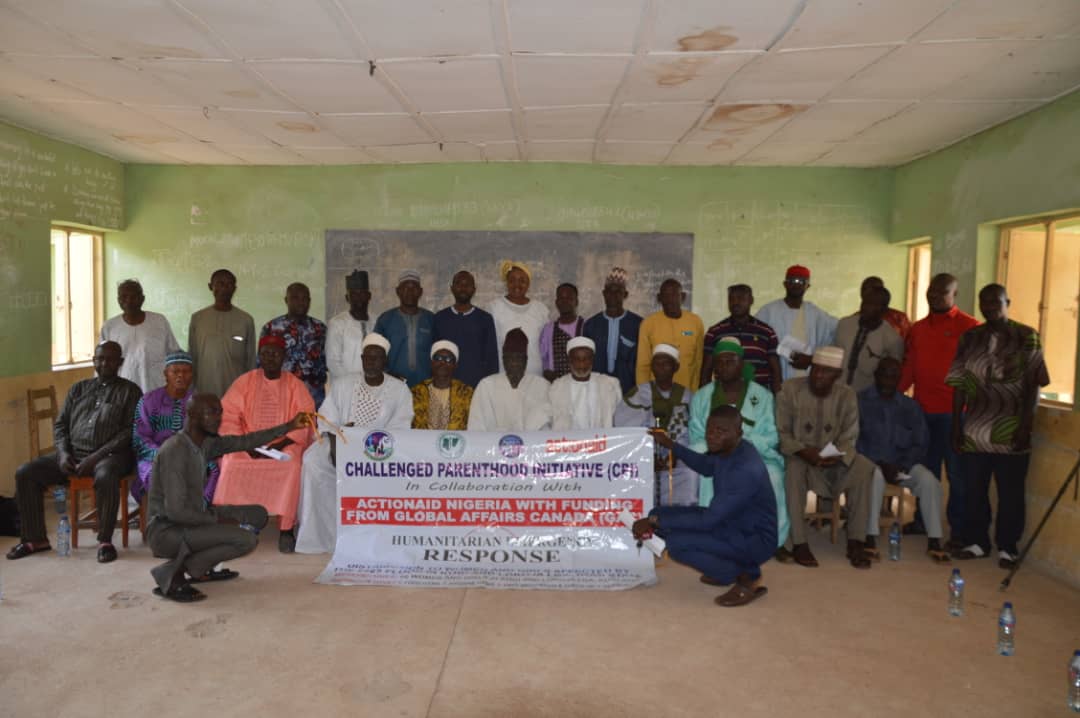
State and Non State actors living in the flood prune areas of Lokoja and Kogi LGAs of Kogi State have been asked to work together to reduce the impact of future flooding on communities in the future.
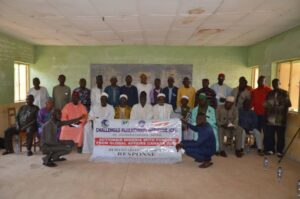
The Executive Director, Challenged Parenthood Initiative, Eunice Abimbola Agbogun, made the call at a stakeholders Dialogue On Implementing and Tracking an emergency preparedness; role and responsibilities, held at Al – Ahzar Secondary School, Newlayout Lokoja, described the impact of the 2022 flood as devastating.
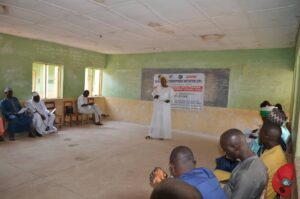
The stakeholders Dialogue for Community Leaders was organised by Challenged Parenthood Initiative, in collaboration with ActionAid Nigeria, with funding from Global Affairs Canada on Humanitarian Emergency Response.
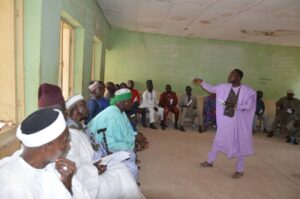
The Executive Director pointed out that for the protection of lives and properties, residents living in flood prune communities should abide by Government orders as well as advice of professionals before and after the flood.
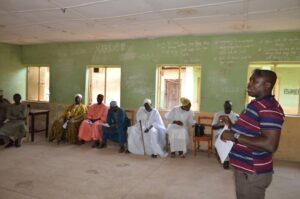
She further disclosed that one way to guarantee that lives and properties as well as to Forestall future occurrences of the devastation of Flooding is not felt in the coming future is for non State actors to keep reminding, educating and sincerely inspire community leaders and all stakeholders to do the needful.
While pointing out that no amount of palliatives can make up for the loss suffered from the 2022 flood, especially when it comes to loss of life, said it is important to take early warning and preparedness seriously.
In his presentation, Sunday Akpa, representative of SEMA Executive Secretary, described disaster as unplanned for, but urged Community Leaders to be well informed and to inform government of emergencies when ever it occurs.
He asked the Community Leaders to make follow up on submissions on emergencies to government whenever it occurs, tasked them to keep records of people affected by the incidence, so as to allow for only the affected persons to be catered for.
He advised on the use of the media to bring to the attention of the government incidences of disasters, urged them to identify but not to limit there demand of assistance only to government, but other well meaning organizations and individuals.
Similarly, Abubakar Abdullahi, the Red cross representative at the occasion stressed on the need to take heed of early warning with the seriousness it deserves.
He disclosed that only the government cannot do it alone in situations of emergencies, called on all stakeholders to collectively work together in mitigating natural disasters in Communities.
A cross section of the stakeholders identified the need for government to make available hybrid seedlings, provide them with the means of evacuation when natural disasters like the flood occurs.
While many of the affected communities the stakeholders, said they didn’t benefit from the palliatives given to them by government, stressed that government should take issues of sanitation seriously in internally displaced persons camps in the future.
The stakeholders called for the need to create more dams, make internally displaced persons camps habitable, called for government to carry out flood assessment to ascertain the level of impact done to communities and individuals, appeal for plans to
relocate persons living in flood prune areas.
It would be recalled that CPI had earlier visited affected communities in Lokoja and Kogi LGAs where they carried out distribution of palliatives to women and girls affected by the 2022 flood.
About 60 beneficiaries made up of women and girls in the affected LGAs were given palliatives such as food items, hygiene items, free medication and check up as well as sensitization.


